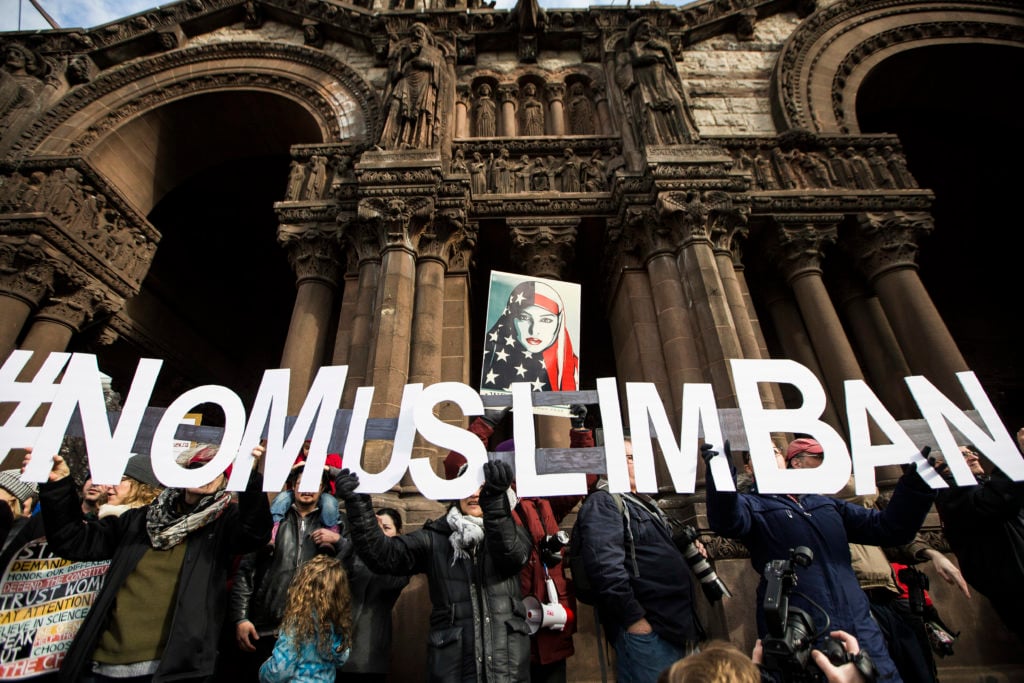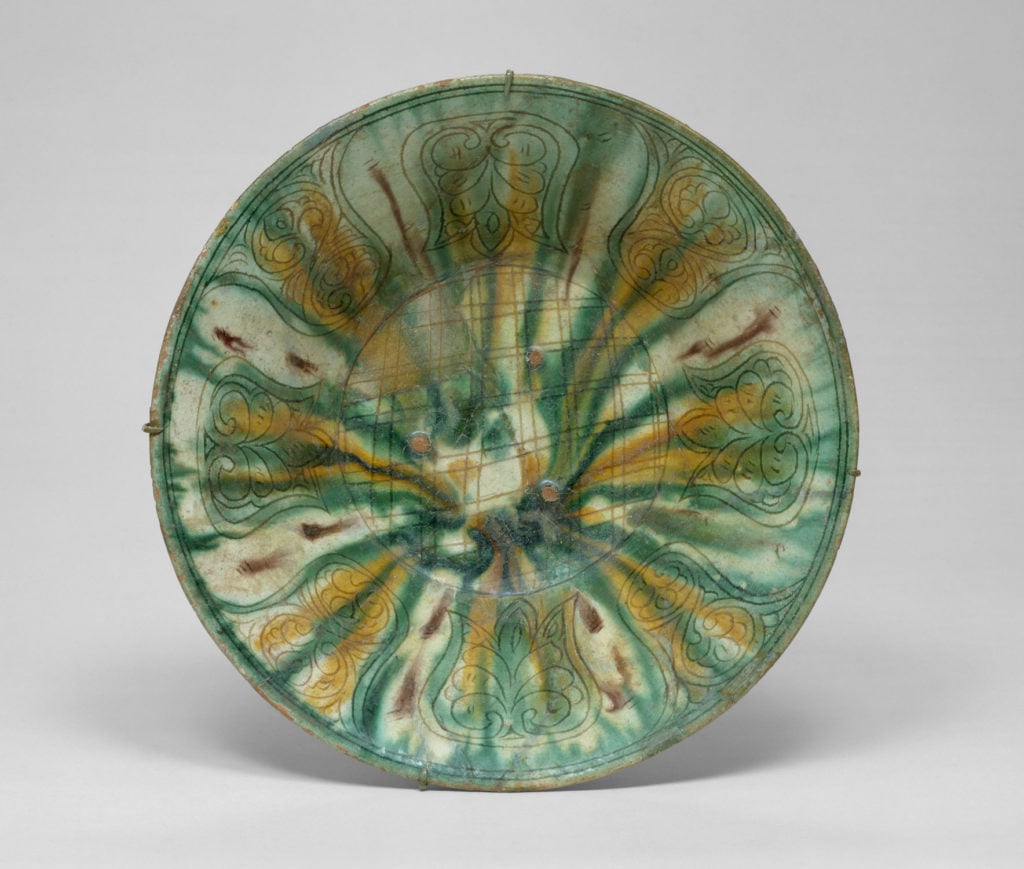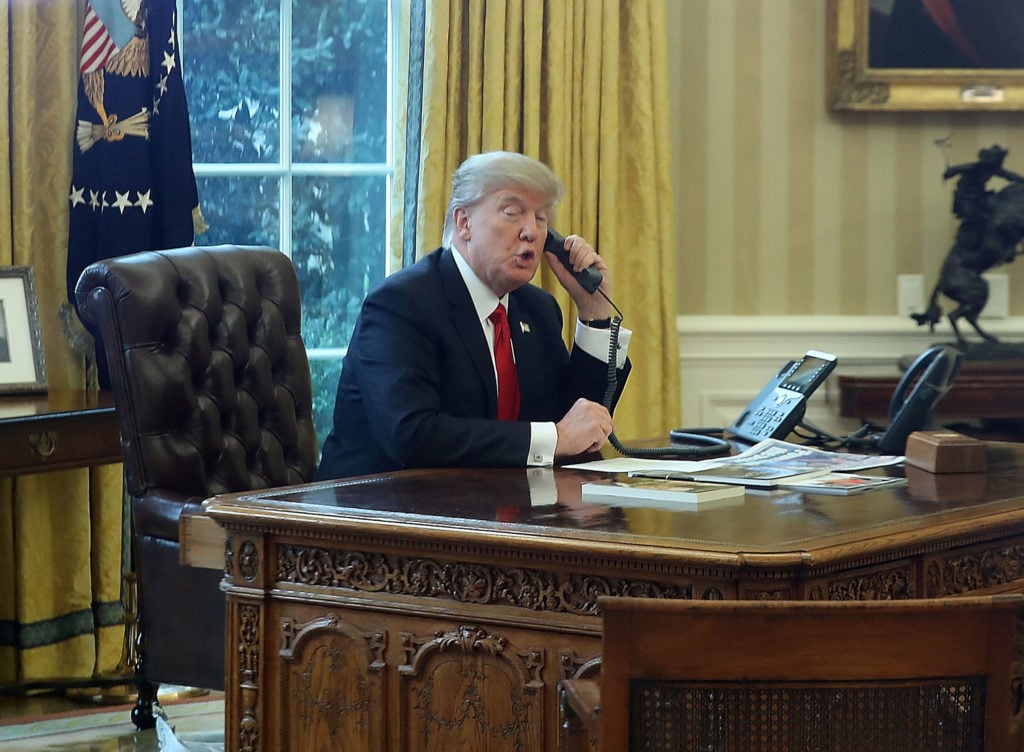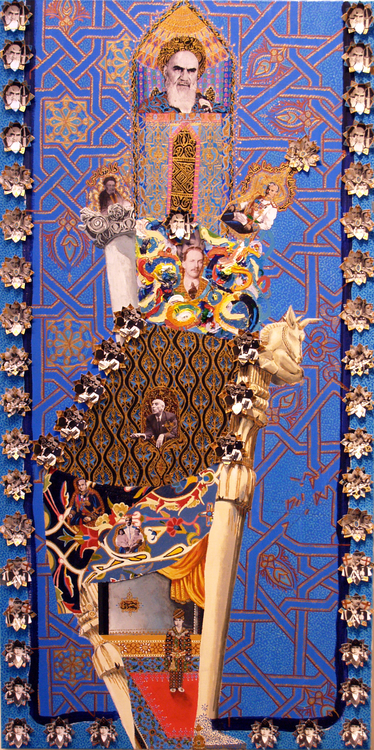Politics
The Art World Braces for Impact of Trump’s Controversial Immigration Order
Institutions across the country may be affected as they plan programming.

Institutions across the country may be affected as they plan programming.

Sarah Cascone

Arts and culture institutions around the United States are grappling with President Donald Trump’s new executive order, which temporarily bars citizens from the Muslim-majority countries of Iraq, Iran, Sudan, Somalia, Syria, Libya, and Yemen from entering the country, reports the New York Times. They will likely be forced to cancel some programming and projects in response to Friday’s action.
“Scholarly exchanges and international collaborations are key to our ongoing work, and we are very concerned that a number of programs we have in place could be threatened, just at a time when the world needs more, not less, exchange and mutual understanding,” Thomas P. Campbell, the director of the Metropolitan Museum of Art in New York, told the Times.
Trump signed “Protecting the Nation From Foreign Terrorist Entry Into the United States” on January 27, in a surprise move. The order applies to people from the seven listed nations, as well as all refugees, but it may be a violation of the 1965 Immigration and Nationality Act, which bans discrimination against immigrants based on their nationality.

Bowl with Green, Yellow, and Brown Splashed Decoration (10th century), from Nishapur, Iran. Courtesy of the Metropolitan Museum of Art.
The order could prevent the museum from arranging loans with institutions in the affected countries, and could put an end to joint archaeological surveys and excavations with Iraq and Iran, as well as a planned publication with Iran on the historic city of Nishapur.
Over 100 people were detained at airports around the US hours after the order went into effect—according to a Department of Homeland Security official who spoke to the Times and ABC News—prompting federal judges in New York, Boston, and Virginia to issue stays against the order, allowing those stranded upon arrival to enter the country.

President Donald Trump is seen through a window speaking on the phone with King of Saudi Arabia, Salman bin Abd al-Aziz Al Saud, in the Oval Office of the White House, January 29, 2017 in Washington, DC. Courtesy of Mark Wilson/Getty Images.
Over the weekend, tens of thousands of protesters rallied at international airports, in view of the Statue of Liberty in New York City’s Battery Park, and outside the White House in Washington, DC, to decry Trump’s executive order.
Among the detainees were both visa and green card holders. The Trump administration has provided conflicting information about whether permanent legal US residents are included in the ban, and whether they will be allowed to return to the US after travelling abroad.
Moving forward, institutions across the country may be affected as they plan programming exploring the art and culture of the Middle East. In Minneapolis, the Walker Art Center is holding a solo show for Iranian artist Nairy Baghramian in September, while Los Angeles’s Craft and Folk Art Museum opened “Focus Iran 2: Contemporary Photography and Video” on January 19.

Asad Faulwell, Iran: Pillars (1982–1989). Courtesy of the Los Angeles County Museum of Art.
“We have no idea yet how this might affect us,” a spokesperson from the Los Angeles County Museum of Art told the Times, “but we do have at least one important exhibition of art mostly from Iran that would be impacted by travel restrictions that would make it difficult to do research and work with artists and authors, as well as borrow works of art that would require couriers from collections in Iran.”
The museum has been a proponent of contemporary Middle Eastern art, most recently acquiring Iranian artist Asad Faulwell’s painting Iran: Pillars (1982–1989).
On a broader level, the ban will restrict artists and other art world professionals from the seven nations from visiting the US, even for fellowships, exhibitions, conferences, research projects, and other professional reasons. Asghar Farhadi, director of the Oscar-nominated The Salesman and an Iranian citizen, will be unable to attend the Academy Awards next month.
Condemnation of Trump’s immigration stance has been outspoken among celebrities and prominent members of the art world.
Pop star Rihanna, a US green card holder, made her feelings about the executive order clear by posting Hans Haacke’s Star Gazing (2004) on Instagram.
Trump’s order has also been denounced by some Republicans, with Senators John McCain and Lindsey Graham issuing a joint statement:
“Such a hasty process risks harmful results. We should not stop green-card holders from returning to the country they call home. We should not stop those who have served as interpreters for our military and diplomats from seeking refuge in the country they risked their lives to help. And we should not turn our backs on those refugees who have been shown through extensive vetting to pose no demonstrable threat to our nation, and who have suffered unspeakable horrors, most of them women and children.”